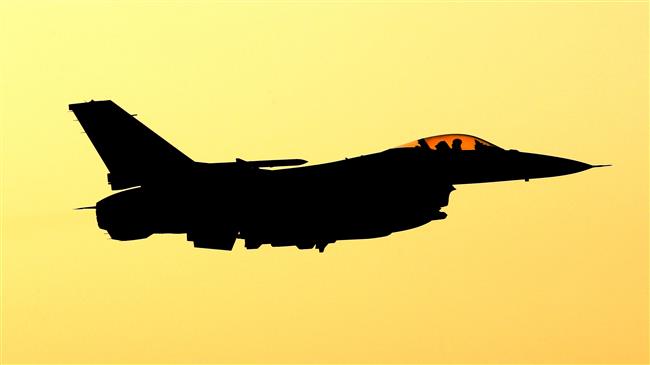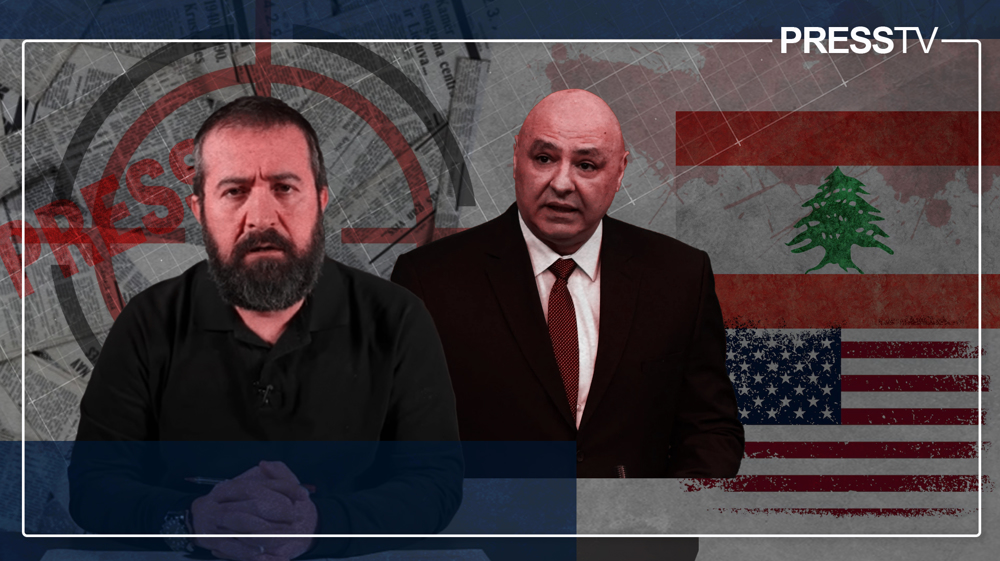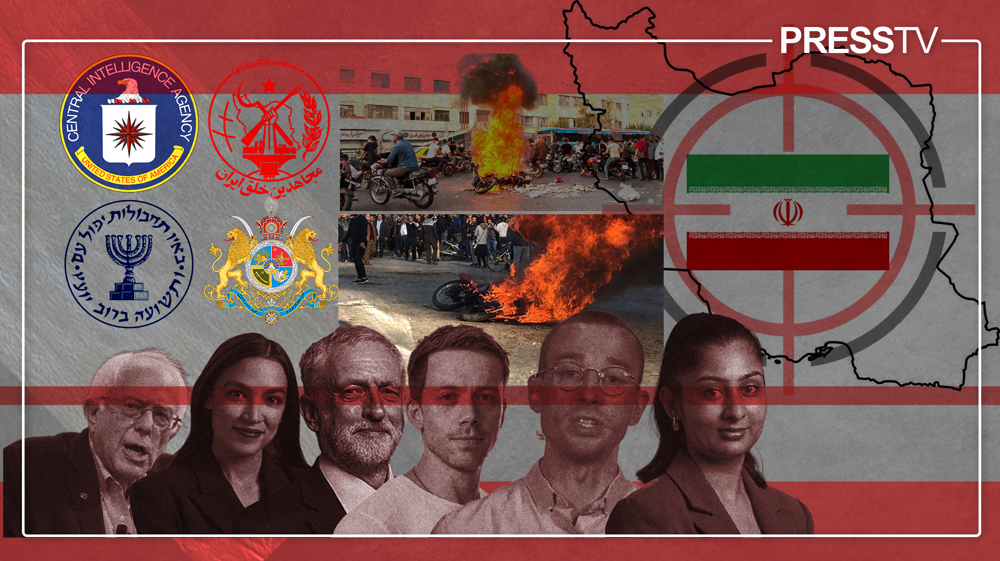The Weekly: Our most important stories from last week
The Weekly is a brief look back at the most consequential news from last week with a view to putting them in context. Published every Monday, The Weekly retells each of the selected stories, adds a little perspective, and gives directions as to where things may be headed.
The week ending on December 30, 2019 was more fateful, at least according to the media. It turns out Russia featured prominently in the news last week, and our most important stories worth remembering to follow up on were about: US strikes on Iraqi paramilitary forces, the prospects of extending an international arms embargo on Iran, Russia’s unveiling of the world’s first hypersonic, nuclear-capable missile, a military drill by Iran, China, and Russia, the health of Oman’s Sultan Qaboos, and news about US Secretary of State Mike Pompeo’s potential exit from the US administration.
[1]
US hitting paramilitary targets in Iraq, Syria
In the course of the tribulations that have hit Iraq and Syria, the militaries of the two countries have not always been able to hold their own. When the terrorist group Daesh started advancing through Iraq in 2014, the Iraqi military was taken by surprise. Soldiers fled from some of their bases on the path of the terrorists, leaving military vehicles and hardware — much of them American-made — in place, which the terrorists later comfortably picked up.
But government forces soon reorganized, with crucial help from a well-organized group of volunteers that came to be known as the Popular Mobilization Forces, or the PMU.
The PMU were largely, but not at all exclusively, Shia. As a US military coalition — largely conducting bombardments from the air — made only small advances against purported Daesh targets in Iraq (and Syria), the PMU ardently fought on the ground, actually dislodging the terrorists and retaking territory. Ever since, the US has liked to describe them as “Iranian-backed.”
On Sunday, December 29, 2019, US military aircraft attacked a number of PMU bases in Iraq and Syria, killing dozens and wounding as many others, according to the paramilitary group, now part of the Iraqi military by law.
The US said the strikes were in response to a rocket attack that purportedly killed a US serviceman in an Iraqi base. America described its own attacks as “defensive,” stretching the meaning of the word so much that it may be used similarly by any adversary against another — including against America itself. US Defense Secretary Mark Esper had earlier, on December 17, 2019, spoken of what he had called “our right of self-defense” when talking about rocket attacks on Iraqi bases housing US forces.
The US strikes, together with the US’s new definition of “defense” in foreign territory where it has no business being, is a recipe for disaster. US-friendly Iraqi President Barham Salih has condemned the US attacks as unacceptable, and caretaker Prime Minister Adel Abdul-Mahdi has called them “a dangerous aggravation.” And it is hard to imagine that the PMU will sit on their hands — militarily speaking.
[2]
An international arms embargo on Iran? Not so much!
Russia has cooperated closely with Iran on a number of issues in recent years, most prominently on the Syrian war and the Iran nuclear deal. That has been a win-win. Significantly in Syria, and with Iranian military cooperation on the ground, Russia has managed to assert itself as a power with both political and military influence in the Middle East, countering the United States, which has long sought to assert itself as the only such power.
In the case of the Iran deal, too, Russia emerged both as a diplomatic influencer that helped nail the deal down after years of negotiation and, again, as a counterweight to a body-blocking America, which has attempted to torpedo the very agreement it once was a party to.
Despite all that has been thrown at it, the Iran deal continues to stand because all remaining parties — including Russia — want it to.
That is why one provision of the deal, enshrined in a binding United Nations Security Council resolution, will proceed to terminate a long-standing arms embargo on Iran in October 2020.
That will be much to America’s chagrin. And, a full year in advance, the US has said it wants the arms embargo extended.
It doesn’t have a chance — not at the Security Council.
On Friday, December 27, 2019, Russian Deputy Foreign Minister Sergei Ryabkov — whose country wields veto power at the Council — ruled out that extension.
That of course doesn’t mean that, come October 2020, Iran will be flooded with foreign armaments. For one thing, Tehran is not in the habit of binge-shopping weapons. For another, the US will do what it can to avert the provision of arms or military spare parts to Iran. (“They may come up with something else next time,” Mr. Ryabkov said of the Americans.) Hypothetical weapons sales to Iran are especially unlikely from the European Union (EU), which is a party to the Iran deal but which the US often easily arm-twists.
But Resolution 1747 (2007), which once put in place an arms embargo on Iran, has already been terminated by Resolution 2231 (2015), the one that effectively turned the Iran deal into international law. The newer resolution states that, “All States may participate in and permit [...] the supply, sale or transfer [...] to Iran, or for the use in or benefit of Iran, of any battle tanks, armoured combat vehicles, large caliber artillery systems, combat aircraft, attack helicopters, warships, missiles or missile systems [...] or related materiel, including spare parts.”
And Russia has already delivered missile defense systems to Iran.
A restriction regarding potentially nuclear-capable ballistic missiles will remain on Iran until 2023. But Iran doesn’t need any such missiles. It has no nuclear weapons program, and has an abundance of advanced, indigenous, conventional missiles itself.
And although a great power confrontation is unlikely to play out too publicly, Mr. Ryabkov’s assertion of his country’s stance does set Russia and America up for some kind of a showdown at the Security Council.
[3]
Avant-garde weaponry
Speaking of great power rivalry, Russia has just introduced its — and the world’s — first hypersonic, nuclear-capable missiles.
That doesn’t just step Russia’s combat capabilities up a notch; it also puts America behind in an effective arms race that Washington itself has initiated by abandoning an arms control treaty with Russia earlier this year.
Prior to the Russian deployment of its hypersonic missile, and after quitting that treaty, the US had already test-launched at least two missiles, though they weren’t of the same capabilities of the new Russian one. (That’s how an arms race actually looks like.)
In August, US Defense Secretary Mark Esper had admitted that it was “probably a matter of a couple of years” before Washington could be able to develop a hypersonic weapon.
With the Russian deployment of its “Avangard” missiles, America will most likely be scrambling to catch up!
[4]
Iran, Russia, and China have a message for America
On Friday, December 27, 2019, Iran launched a four-day naval exercise with China and Russia, drilling combat and rescue missions, in a first of its format.
The US is, meanwhile, conducting what it calls a security mission in the Persian Gulf, near Iran. It proclaims a “right to freedom of navigation” in many bodies of water elsewhere, including disputed ones in the South and East China Seas. And it essentially leads NATO, which has long attempted to deploy forces and missiles close to Russian territory, attempting to encircle it.
And so, the point of the Iran-China-Russia drill was lost on no one. Still, there was explicit explanation:
🇮🇷🇷🇺🇨🇳 As @JZarif stated once " The fact is that in the current transitional era, not everything happens in, nor by the West. We are truly living in a #Post_Western_world in which all global players have their share in its reality. pic.twitter.com/hLfyuOV3GN
— S.A MOUSAVI (@SAMOUSAVI9) December 27, 2019
While the drill is certain to go without incident, its impact will be strong. Three regional powers — all of them wary of America — teaming up could change military equations in a way that is tangibly to America’s disadvantage.
Wait to see whether the United States will digest that signal or cramp up!
[5]
The Middle East may be losing a kind-hearted mediator
Omani Sultan Qaboos’ health has been deteriorating, prompting a succession process to launch, according to reporting by The Guardian.
Qaboos bin Said Al Bu-Saidi has ruled Oman for 49 years, gradually earning his country the nickname “The Middle East’s Switzerland” with trademark diplomacy to diffuse regional and global tensions. (Oman reportedly brokered and initially hosted negotiations between Iran and the United States that later led to full-scale negotiations and a nuclear deal.)
The Sultan’s potential passing will be unfortunate news for many of the countries (and people) who have been able to see the fruits of his diplomacy first-hand. No less importantly, it could mean a more distressed Middle East.
[5]
Pompeo headed for the exit?
And last but not least, US President Donald Trump is looking to replace Secretary of State Mike Pompeo, according to The Washington Post.
An image of Pompeo washing dishes at home on Christmas helped strengthen speculation that he may be leaving the US administration soon.
Unlike his milder predecessor, Rex Tillerson, Pompeo has been toxically anti-Iranian. The 56-year-old may owe much of that anti-Iran venom to incessant, lop-sided American mainstream media reportage of what is known in America as “the Iran hostage crisis,” the takeover of the American embassy in Tehran by revolutionary students back in 1979.
“People who came of age then were bombarded with images of Iranians screaming ‘death to America,’ and, of course, holding Americans prisoner. It (the media coverage) turned that generation — and especially people like Pompeo, who went to West Point and joined the military — instinctively anti-Iran,” a US-based journalist told Press TV on the condition of anonymity.
Although Washington is in no shortage of politicians who are intellectually malleable to oppose Iran, Pompeo could potentially be replaced by a less explicitly anti-Iran figure. Thus, if The Washington Post’s reporting is accurate, one will have to wait and see who President Donald Trump — a self-proclaimed advocate of diplomacy with America’s adversaries — will choose as his top diplomat this time around.
Have a great week, and happy reading Press TV!
Iran ministry slams EU’s blacklisting of IRGC as 'Illegal, hypocritical'
Hamas blasts Western media for blindly defending false Israeli narrative
ElBaradei condemns US threats of military action against Iran
VIDEO | Red the only colour in Gaza
‘No two-hour war’: Iran vows immediate retaliation to any attack
VIDEO | US warmongering threatens stability
Pezeshkian: US must end provocations if it seeks genuine diplomacy
Iran summons German ambassador over Merz’s ‘low-minded’ remarks
















 This makes it easy to access the Press TV website
This makes it easy to access the Press TV website